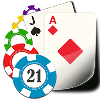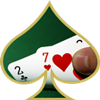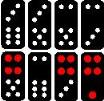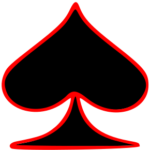MENUMENU
- Online Casino Games Guide
- Best Online Casinos
- Online Casino Reviews
-
-
-
Online Casinos by Country
Click your country on the map to find a list of the best online casinos accepting players from your country
Click the (+) on the up-left side to enlarge the map, then move the map with your mouse to focus on your country.
-
-
-
-
-
Search something on CasinoPoker.co
-
-
- Casino Guest Post
It looks that you are lost
Search on this site
or try any page below
- How to increase your chances of winning at slot machines?
- How to know the return to player rate of a slot machine?
- How to choose a slot machine
- 3 reels Slot machine
- How to play slot machines
- Progressive Jackpot Slot Machine
- How to win at slot machines?
- 5 reels machines
- Slot Machines Providers
- The random number generator
- How to choose the best location at a blackjack table
- The best blackjack movies
- How to Play Blackjack: Blackjack Rules
- Blackjack Martingale
- Mobile Blackjack
- Live Blackjack
- Blackjack strategies
- The 25 best books on blackjack
- Actions: split, double, surrender
- The stars of blackjack
- Blackjack Insurance
- Winnings in Blackjack
- Top Blackjack Variations
- American Roulette
- The Roulette Martingale Strategy
- Where to Play Online Roulette? The Best Online Roulette Casinos
- Mobile Roulette
- Roulette Tips
- Roulette Strategy
- How to Play Roulette & Roulette Rules
- French Roulette
- The Best Roulette Combinations
- Learn Roulette Rules amd Techniques on Video
- Roulette Betting Limits
- Roulette Royale
- English Roulette
- Methods to Win at Roulette
- Live Roulette
- Roulette Odds
- Mexican Roulette
- The Roulette Player
- Roulette Movies
- European Roulette
- Roulette Terms and Glossary
- The Double Up Roulette Strategy













